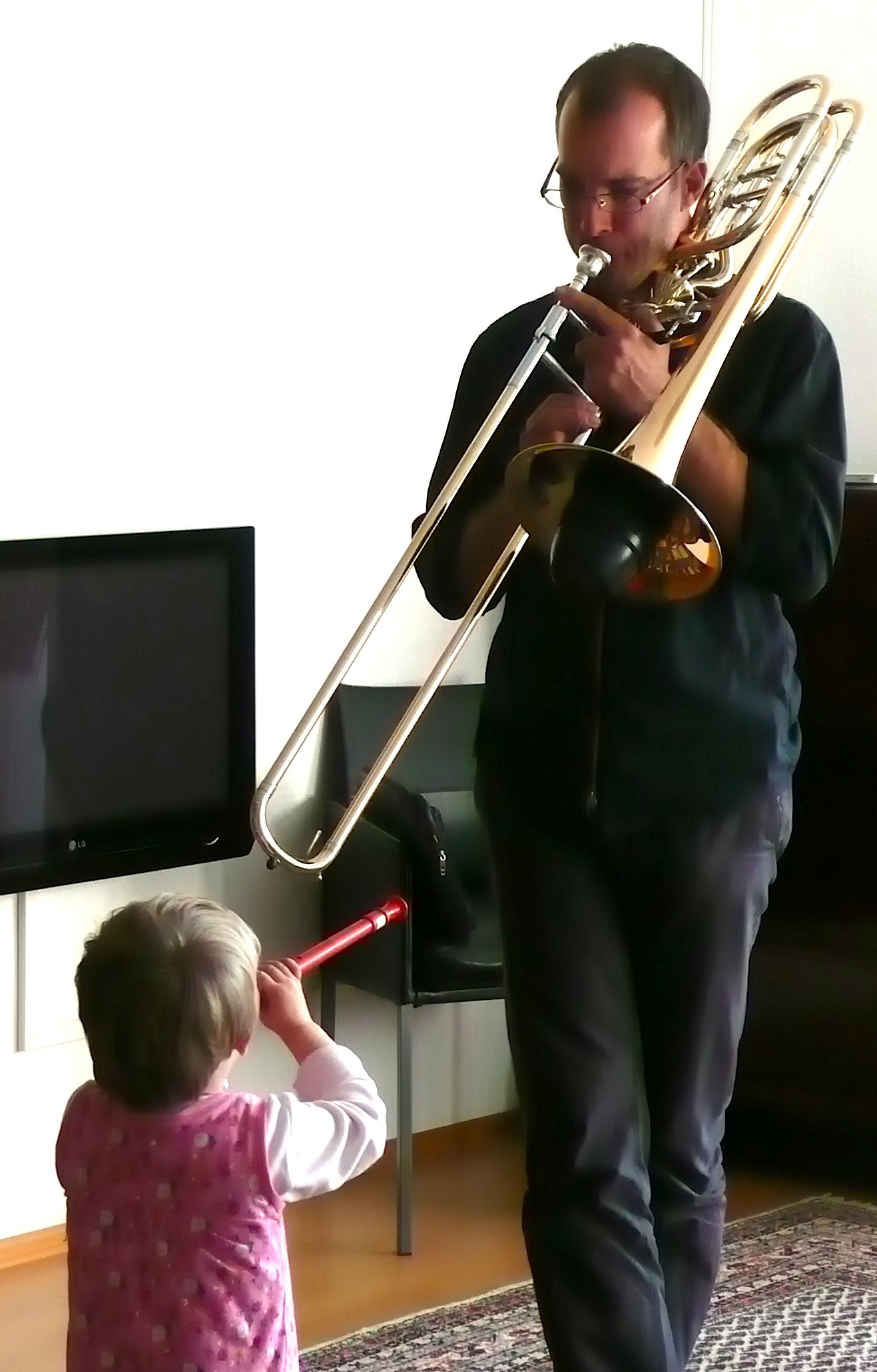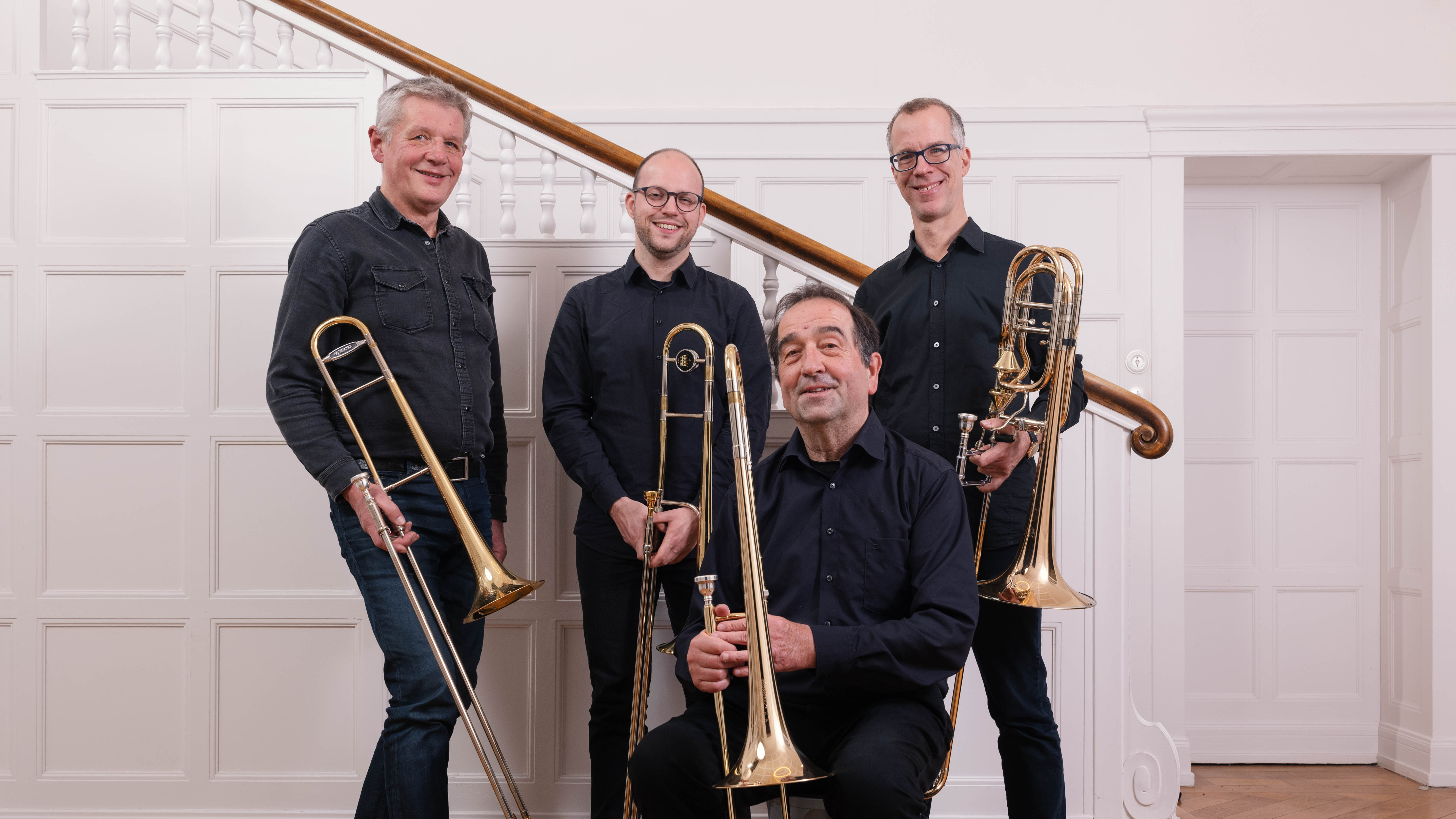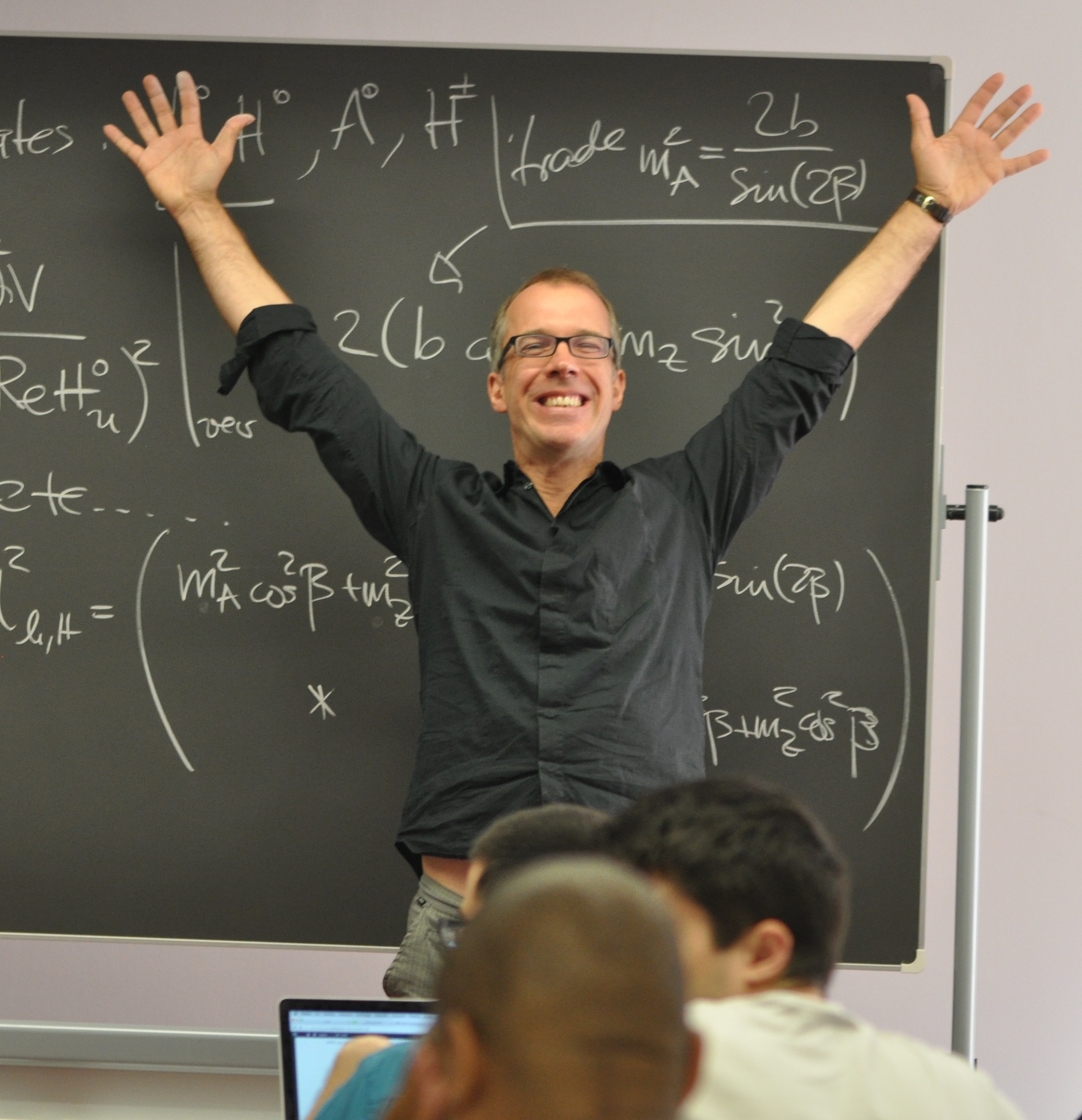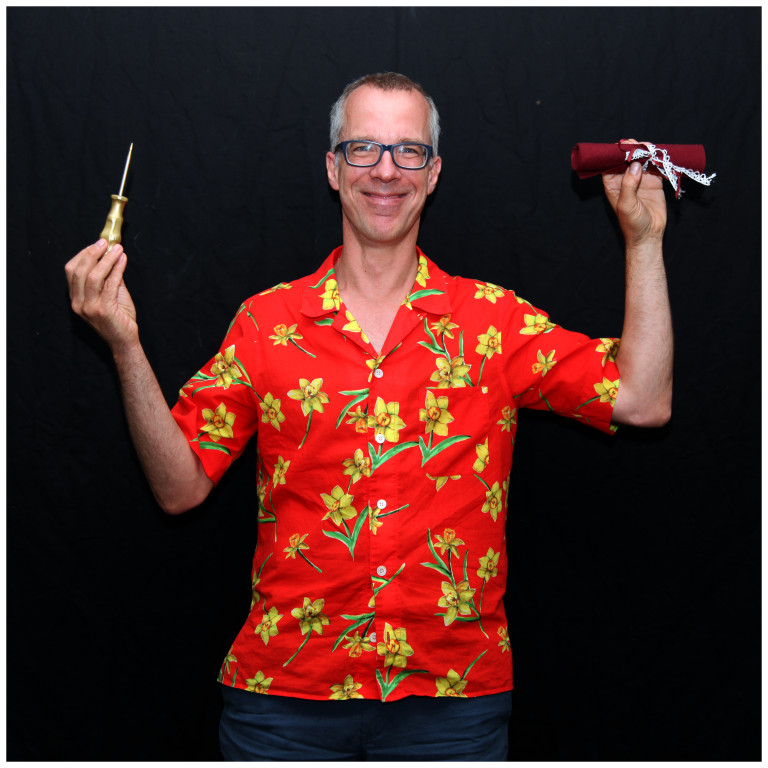|
|
Particle Phenomenology and Machine Learning
Greetings
from Heidelberg, the most beautiful theoretical physics institute
in Germany. Come and visit us at the villas to judge for
yourself.
If I am not playing bass trombone in the
Mannheim University Bigband,
or Heidelberg's
Galapagos bigband,
I am interested in Higgs physics, QCD, and new physics at the LHC
and elsewhere. Because I am not smart enough to just
guess the true Theory of Everything, I approach all of those topics
from a fairly technical point of view, including first-principle
simulations and most recently all kinds of machine learning.
You can find
my publications here
and here,
including all my great ideas which turned out not to be realized
in nature. You might notice that I am publishing almost all
my papers in Scipost - that is
because this journal is made by scientists for scientists, open
access, cheap, and not Elsevier.
When I was young, I calculated higher-order cross sections in
supersymmetry, working on a package called Prospino2. In those
good old days I also worked on proper simulations of physics
beyond the Standard Model with a Monte Carlo generator called
Madgraph. Even though my enthusiasm for supersymmetry searches
has taken hit after hit of LHC running,
my group still takes pride in simulating things properly,
even if it takes us and our computers some extra time. QCD is just
too much fun to use short cuts.
During the early LHC years the Higgs boson has
transitioned from the most exciting discovery to a
handle to search for physics beyond the Standard Model. The way to
search for such effects is through the extension of the Standard
Model to an effective field theory,
the Standard Model effective field theory.
Coordinated with some field theory work we established a
global Higgs and gauge boson fit through our SFitter tool - run by
a French-German coalition of the difficult. There we
have great fun with frequentist and Bayesian statistics
applied to LHC data. Because
we like crazy technical problems, our main goal is to get
the uncertainties right, even those theory uncertainties which are
not even defined properly.
And since we are at that, we recycle
all this technical know-how for global top-sector analyses, including
higher-order predictions, or global dark matter analyses.
Talking about statistics, together with friends at NYU we
developed a way to compute and understand where information about
signal processes at the LHC actually come from; which regions of
phase space we should study, and what we can expect from different
production and decay channels. This application of information
geometry is a great example how to apply proper maths
to LHC physics without following of the usual path of formal
physics. So if you are interested in learning what the
Neyman-Pearson lemma or the Cramer-Rao bound have to do with the LHC,
or if you want to know why physicists like to call a score an
optimal observable, just drop me a mail.
A few years ago, I have started using machine learning on many aspects
of LHC physics. This is not the usual multivariate analyses,
but proper modern neural networks. It all started with
the question how we can identify boosted top quarks using QCD jet
algorithms, where our HEPTopTagger really made a difference. After
a while we upgraded it to DeepTop, based on convolutional
networks, and a completely new DeepTopLoLa setup. That network
uses relativistic kinematic, and I am proud to say that we were
able to measure the Minkowski metric with error bars - and to get that
published. By now, these applications of machine learning in jet
physics are standard at the LHC, just ask our local ATLAS groups.
As for most people, classification networks just marked my entrance to a huge
technical playground. Looking at modern machine learning through the
eyes of a technically minded LHC person feels like being a kid in
Heidelberg's Zuckerladen. Anything you always wanted to do seems
possible now, at least until you actually try it. Going back to my interest
in error bars, I am a big fan of Bayesian networks and all the
errors they can quantify for you. Or imagine what you can do with
generative networks if you spent enough time in the Monte Carlo
community and always wanted to find a better way to unweight events.
And then your local machine learning friends tell you how to invert
Monte Carlo simulations with neural networks, allowing you to
unfold nastiness like detectors or QCD jet radiation.
Sometimes such practical projects even allow us to learn
something about the way certain neural networks work, and for a theorist
such a projekt is of course especially exciting. And that is
just the beginning of all the fun we will have with these new methods.
So, if you are interested in any of these things:
call me, come by, catch me if you can. Of course I do not do all of this
by myself. We have a great group of brilliant postdocs, outstanding
graduate students, and amazing research students. We offer bachelor,
master, and PhD thesis projects in all research directions.
Just come and join us for a coffee or a thesis. The
only thing we require is a nice set of lectures heard,
indicating that your studies are driven more by the excitement
for physics than a career perspective as a management consultant.
This definitely includes having heard Quantum Field Theory I and II,
Standard Model physics, and some of the
advanced lectures and seminars we offer in particle phenomenology.
If you started off as an experimentalist and you would like to
switch to theory we will try hard to make this possible.
Also, if you are a computer scientist and you suspect that
theoretical particle physics might be much more fun, we will happily
help you confirm this suspicion.
Finally, if you are interested how I ended up here, have a look at
my short CV. Even
though in our group we have seen some really nice careers unfold,
please do yourself the favor and have a good plan B before trying
your luck the same way...
Contact
Mail:
Phone: +49 6221 54 9104
Fax: +49 6221 54 9333
Private: +49 176 62915975 (cell)
Institut für Theoretische Physik
Universität Heidelberg
Philosophenweg 16
D-69120 Heidelberg, Germany









